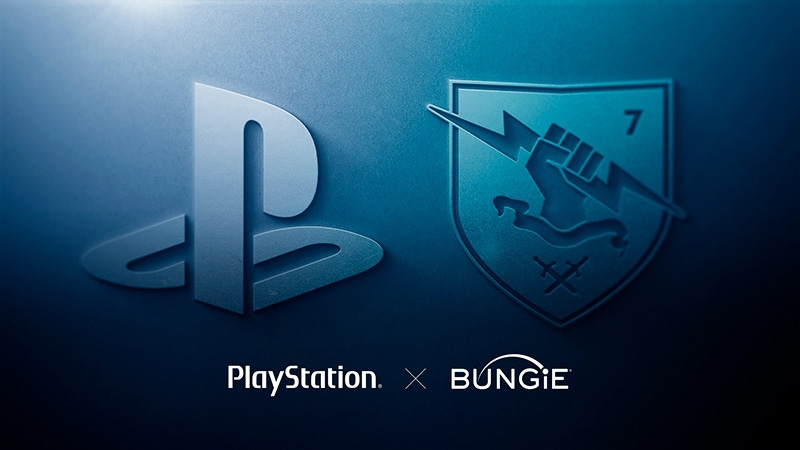Trending
Opinion: How will Project 2025 impact game developers?
The Heritage Foundation's manifesto for the possible next administration could do great harm to many, including large portions of the game development community.
Sony now owns all those wizards that come from the moon.

Sony has completed its $3.6 billion acquisition of Destiny 2 developer Bungie. In a tweet announcing the deal, the company welcomed the studio to the PlayStation family, while Bungie CEO Pete Parsons called it a "big bold step forward" on his Twitter account.
On his own account, PlayStation Studios head Herman Hulst praised Bungie for its "ground-breaking games," and said that he looks forward to "chart[ing] a bold course for SIE, PlayStation Studios, and Bungie."
The successful closing of the deal means that Sony and Bungie seem to have cleared scrutiny from the U.S. Federal Trade Commission.
Bungie has now taken a very long journey as a game developer across an array of different statues. First it was an independent game developer. Then it was owned by Microsoft, developing the Xbox-exclusive Halo series. Then it split off and published Destiny with Activision Blizzard, then it went fully independent again. Now it's owned by Sony Interactive Entertainment.
Its future probably doesn't involve a PlayStation-exclusive version of Destiny 2, but it will definitely be contributing to the supercharged cycle of subscription services and cross-media production that the company is revving up.
Our vision is to make Bungie the best place anyone in the entertainment industry will ever work – a center of creative and technical excellence for our team, our players, and the communities we call home.
— pete parsons (@pparsons) July 15, 2022
Based on the clues offered by Sony executives and Bungie's announcements, we do have some sense of what's next for the house that once made Halo.
For instance, we already know that Sony wants Bungie to help it launch 10 live service games by 2026. We also know that a $100 million investment from NetEase in 2018 likely spurred the development of mobile games within Bungie's hallowed halls. (NetEase recently launched Diablo Immortal in partnership with Blizzard, and is supporting the game in China. Its release has been delayed.)
We also know that Sony is hungry to bring PlayStation-owned brands to live action through PlayStation Productions. That might mean we'll see a Destiny TV show or film in the future; it might also mean one of Bungie's promised new IPs is being revved up for maximum IP exploitation.
What will be worth watching is how "independent" Bungie is allowed to remain, especially in the weeks after the company loudly protested the U.S. Supreme Court's reversal of Roe v. Wade. In social media posts, company representatives stated that "there will never be a 'muzzle' big enough to stop us from standing up for what's right" (Parsons himself would endorse the sentiment).

Sony has apparently restricted its studios from making statements on abortion and reproductive rights. That policy either was reversed, or Sony studios deliberately disobeyed that edict when Roe v. Wade was finally overturned.
We don't know yet if Bungie will eventually find itself under similar pressure to speak less loudly about such issues, or if it will be able to leverage its position to help other Sony studios obtain similar independence.
If we're swirling our crystal ball around, we might as well point out that Bungie is now one of SIE's few studios with expertise in publishing games on PC. The PlayStation platform holder have been making extended efforts to put exclusive games on Steam, and it's indicated that more ports of this nature will be part of its financial future.
We'll also go ahead and predict that Bungie is probably not the last company that SIE will acquire. CEO Jim Ryan has said that it's pursuing acquisitions in the name of a "virtuous cycle" of success.
You May Also Like